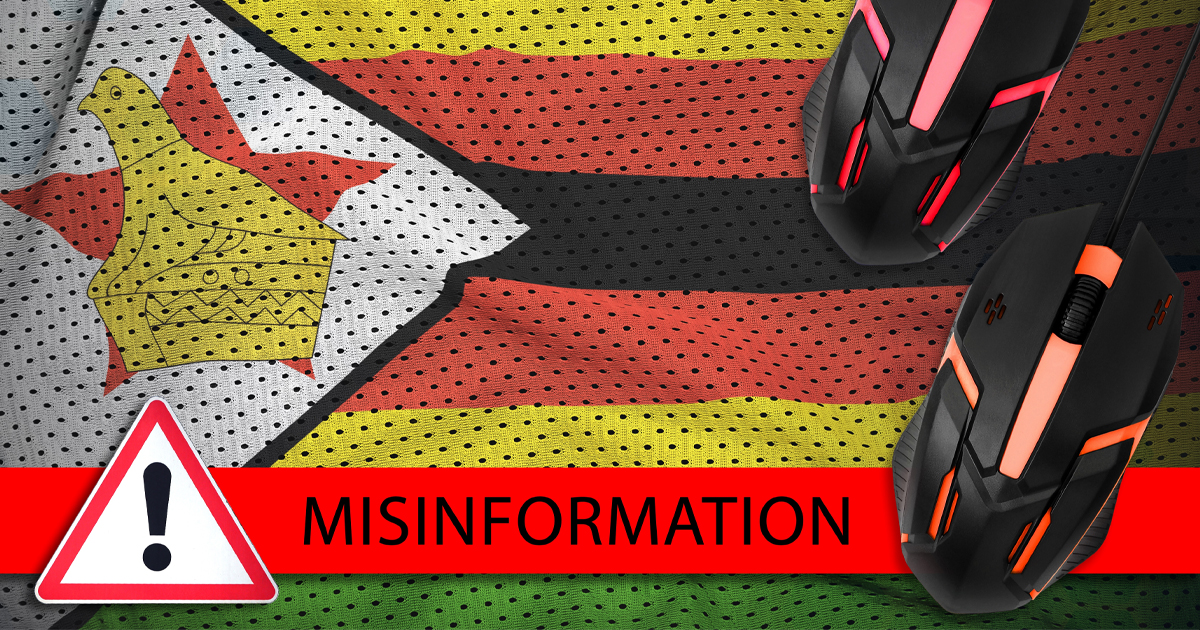On 4 April 2023, the Expression, Information and Digital Rights Unit, and the Media Institute of Southern Africa (MISA) Zimbabwe, hosted an engagement workshop with political actors in Harare, Zimbabwe. The engagement workshop, which was attended by eight Members of Parliament and thirteen representatives from various government departments, discussed the role of political actors in promoting rights respecting approaches to tackling disinformation in Zimbabwe. The Centre for Human Rights (the Centre) was represented by Marystella Simiyu and Jared Gekombe. The workshop was facilitated by a panel of experts namely: Marystella Simiyu of Centre for Human Rights, Nompilo Simanje of International Press Institute, Rehyana Masters, independent expert, and Helen Sithole of MISA-Zimbabwe.
Ms Simiyu commenced the workshop with a conceptualisation discussion on information disorder, that is, misinformation, disinformation and mal-information, and the more familiar term, false news, and their impact on elections and democracy. The participants were then introduced to LEXOTA (Laws on Expression Online: Tracker and Analysis). LEXOTA is an interactive tool that tracks and analyses legislation and government actions relating to disinformation in Sub-Saharan Africa and its impact on freedom of expression. She highlighted that one of the findings of LEXOTA was that most laws were vaguely drafted with no precise definitions on terms such as false news, despite the laws prescribing offences for the spread of false news. The commencing discussion showed the need for a better understanding of the lexicon on false news among policy actors.
Reyhana Masters proceeded to engage the participants on how disinformation was affecting human rights and elections in Zimbabwe, particularly looking at the context leading up to the 2023 elections. This was examined under the framework of international laws and standards on freedom of expression. She underscored the importance of rights respecting approaches to regulating disinformation and freedom of expression, and its impact on the quality of elections. Also highlighted was the negative impact of repressive laws and government actions on watchdogs such as journalists. This dovetailed with a later engagement with the participants on how they as political actors can promote rights respecting approaches to tackling disinformation, and respect, protect and promote freedom of expression during elections.
The assessment of whether Zimbabwe’s laws on disinformation and government actions in response to disinformation were in compliance with laws and standards was led by Nompilo Simanje. She referenced sections 31 and 164 C (as amended) of the Criminal Law (Codification and Reform) Act for the analysis. While some of the participants were of the opinion that the national laws were adequate and harsh penalties such as the criminalisation of the spread of false news, and drastic actions including internet shutdowns were necessary measures, the discussion interrogated how such approaches contradicted international laws and standards. The participants also discussed how measures for combating disinformation affected freedom of expression and media freedom which are guaranteed under the Constitution of Zimbabwe as well as international instruments ratified by Zimbabwe such as the International Covenant on Civil and Political Rights (ICCPR) and the African Charter on Human and Peoples’ Rights (African Charter). Reference was also made to the strengthening of these rights under the Declaration of Principles on Freedom of Expression and Access to Information in Africa (the Declaration), and the Guidelines on Access to Information and Elections in Africa. It is hoped that the engagement enhanced the knowledge and skills of the policy actors on rights respecting approaches to combating disinformation that can translate into better policies, laws, and government actions.
The workshop ended with the following proposed resolutions from participants which included:
- Urgent need to revise and review relevant laws in compliance with international laws and standards. For example, the spread of false news should not be criminalised, and sections 31 and 164C of the Criminal Law (Codification and Reform) Act should be reviewed and replaced with proportionate civil sanctions.
- The government and other relevant actors should ensure proactive disclosure of credible and accurate information in a timely manner to prevent information vacuums that allow information disorder to fester.
- The government should conduct effective civic education to build citizen awareness on relevant laws, which should be easily accessible in reader friendly formats.
- The Postal and Telecommunications Regulatory Authority of Zimbabwe (POTRAZ) should set up training workshops in partnership with various stakeholders to promote media, information and digital literacy skills, particularly among vulnerable groups such as elderly persons.
- The government should avoid implementing internet shutdowns given the grave implications on freedom of expression and adopt more rights respecting approaches.
- Stakeholders such as civil society should host more capacity building workshops for government officials, media and other relevant actors to enhance media, information and digital literacy skills as a measure of tackling disinformation.
More comprehensive recommendations are captured in a policy brief that will be shared in due course.
For more information, please contact:
Tel: +27 (0) 12 420 4199
Hlengiwe.Dube@up.ac.za
Expression, Information & Digital Rights Unit
Tel: +27 (0) 12 420 3180
marystella.simiyu@up.ac.za




